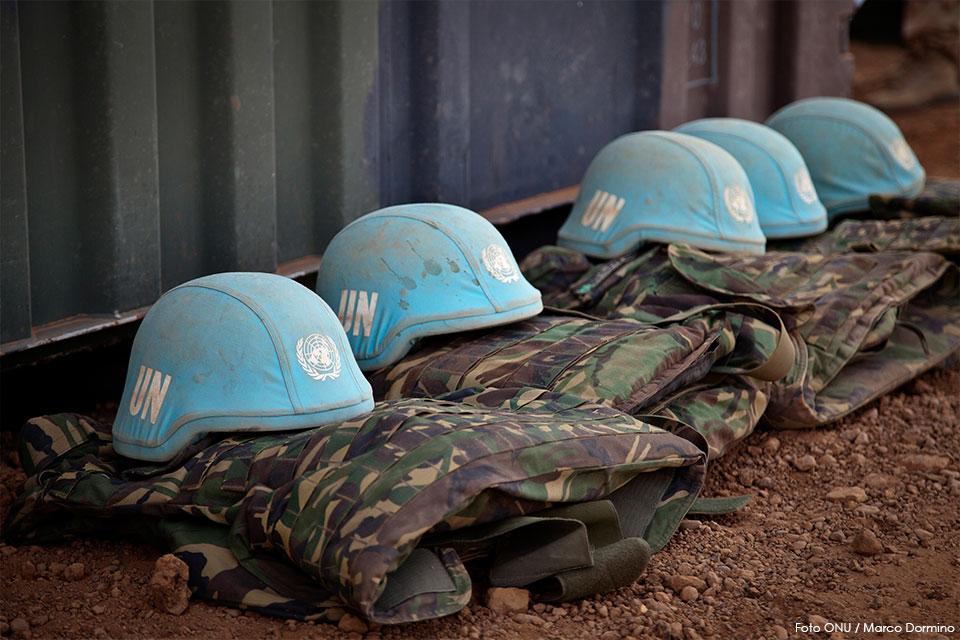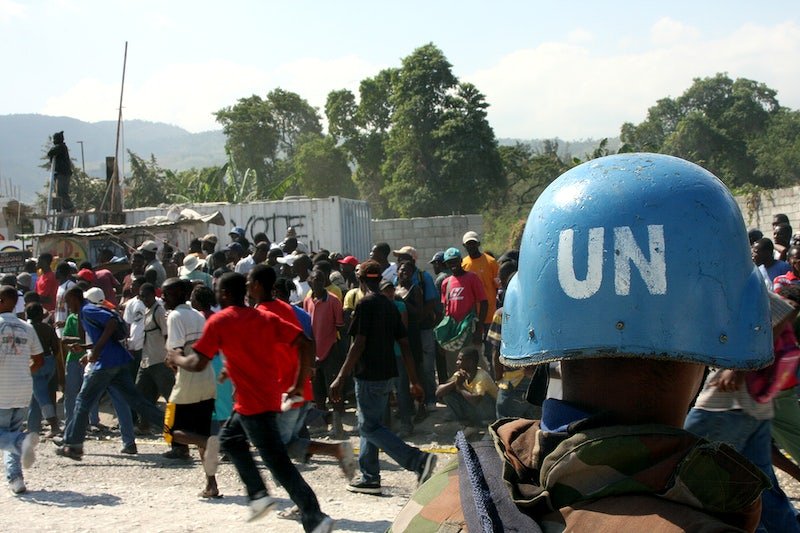
The Kenyan High Court has declared the deployment of Kenyan police and military in Haiti, a country mired in gang violence, to be unconstitutional. As a result, the United Nations mission to regain public control and put an end to the criminal gangs that control a large part of the territory has been suspended.
Haiti first requested international assistance in 2022, in the face of a significant increase in violence, but no country was found willing to lead the international operation. Finally, and after repeated calls from the Caribbean country and the United Nations, in November 2023, the Kenyan Congress agreed to lead the mission, composed of around 2,500 troops, which were to be deployed during the first quarter of 2024.
Justice overturns international mission
A Kenyan High Court judge ruled on January 26 that the mission was “illegal” and violates the constitution. The Kenyan government had hoped to deploy officers to Haiti this month after the UN Security Council approved the mission in October last year and it was ratified by the Kenyan Congress in November.
An opposition party to President William Ruto took the case to court. It ended up in the Supreme Court, which has just ruled in favor of the opposition party member, Ekuru Aukot. He had filed an appeal in the Nairobi High Court claiming that the mission is unconstitutional because it is not supported by any law or treaty. “The National Security Council has no mandate to deploy national police officers outside Kenya,” said Justice Enock Chacha Mwita.
The government’s reaction has been immediate. Already, it has announced that it will “immediately” appeal the court decision, according to spokesman Isaac Maigua Mwaura. The mission was to be led by Kenya, accompanied by Caribbean countries such as the Bahamas, Jamaica, Antigua and Barbuda. With this decision, the deployment has been cancelled for the time being.
The situation in Haiti poses a risk for any country leading an international mission, considering that the president and prime minister of the Antillean country, Ariel Henry, has not been democratically elected. Henry assumed both positions in July 2021, following the resignation of Claude Joseph, and is under investigation for his alleged involvement in the assassination of President Jovenel Moise.
Escalation of violence in Haiti
The situation in Haiti is one of unbridled violence. In addition to the more than 5,000 killed in 2023, 200,000 people have been displaced by the increasingly powerful gangs which, in the absence of a strong police force, have taken over the streets. The UN Office in Haiti documents more than 8,400 direct victims of gang violence in 2023, an increase of 122% over the previous year.
Kidnappings, rape and loss of livelihoods leave thousands of children vulnerable to recruitment. The United Nations has repeated its calls for the parties to “engage peacefully and constructively in the political process”.
Similarly, the international agency has explained that a program is being introduced to train the Haitian police, both in performance and intelligence, to equip them with the tools to maintain public order.
Another challenge is to clean up Haiti’s judicial system in order to combat political corruption. In this regard, the work of the anti-corruption unit to promote the accountability of high-level public officials allegedly involved in corruption cases stands out.
The flow of arms and ammunition into Haiti is strengthening the power of criminal groups. The executive director of the United Nations Office on Drugs and Crime, Ghada Waly, recalled that the office identified four major maritime and land routes, mainly from the United States, in a report presented in October last year.
The document detailed how arms reach certain maritime ports in the Dominican Republic and go from there to Haiti through land border crossings.

Call for regional cooperation
Waly also highlighted Haiti’s inability to stem the flow of money to the gangs through arms smuggling. In this regard, she called for regional cooperation, which can “contribute to reducing trafficking into Haiti, (by) strengthening control mechanisms and information exchange between US law enforcement and Caribbean countries, as well as better monitoring of international flights involving small aircraft”.
Kenya has already participated in several peacekeeping missions in African countries such as the Democratic Republic of Congo, Somalia and Liberia, as well as in other parts of the world, including East Timor and the former Yugoslavia. But following the announcement that it planned to send police to Haiti, a highly unstable and dangerous country, the Kenyan government was heavily criticized.
For his part, Haitian Foreign Minister Jean Victor Geneus called a few days ago for rapid reinforcements to be sent to the island. “Every day that passes is one more day (…) that we live in gang hell,” he declared before the UN Security Council.
With the failure of the Kenyan-led deployment, attempts at regional cooperation are in question, as no country is currently willing to take the place of the African country and command an international deployment to restore peace and public order in Haiti.
See all the latest news from Colombia and the world at ColombiaOne.com. Contact our newsroom to report an update or send your story, photos and videos. Follow Colombia One on Google News, Facebook, Instagram, and subscribe here to our newsletter.

